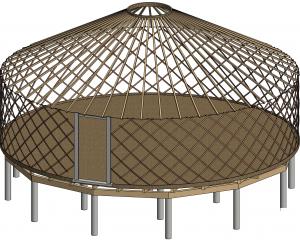And so have their merinos.
Bill Gibson and his son Robert are continuing a family tradition begun by Bill's father Hector, who set the family on a merino-farming course when he bought parts of the huge Morven Hills Station in 1917.
The family's 853ha, flat-land Malvern Downs farm has always been a centre for merino breeding, and attendance at shows - particularly in Wanaka and Christchurch - is just part of the annual cycle.
Bill showed sheep in Wanaka for the first time in 1946 and Robert in 1980.
Bill admits there is not much financial value to be gained from attending the Wanaka show, but he and Robert show no signs of losing interest.
''It's a love of showing and putting your sheep against your opposition, and the good fellowship that you have through showing,'' Bill said.
He has no idea how many prizes he has won, but hundreds of certificates and ribbons are displayed inside Malvern's woolshed.
The most impressive of the 30 merinos destined for the show this year are traditional horned rams bred for their fine wool.
But since 1950, Malvern Downs has also been producing polled (non-horned) merinos, which mature more quickly and are bigger than traditional merinos - making them better for meat production.
Bill said while polled merino had a long history, in New Zealand it had only been in the past five years they had ''really taken off''.
Robert said tenure review had played a part in the increased popularity of polled merino.
The amount of high country land available for grazing wethers had fallen and farmers were looking for animals that matured quickly and could be killed for meat rather than kept for fine wool.
Bill said his family had always loved merino meat.
''People think they've just discovered it, but it's been there all the time.''
He recalls the days when meat cuts such as shanks were thrown to the dogs.
''Now they're keenly sought after.''
Preparing their sheep for the show was mostly about selecting the best specimens.
Bill said he had seen sheep in Canada shampooed and blow-dried for shows, but the best these merinos could expect was a bit of a face-wash and a clip around the other end.











